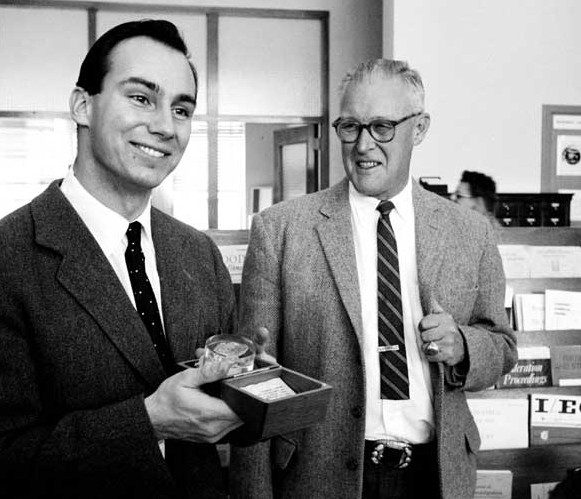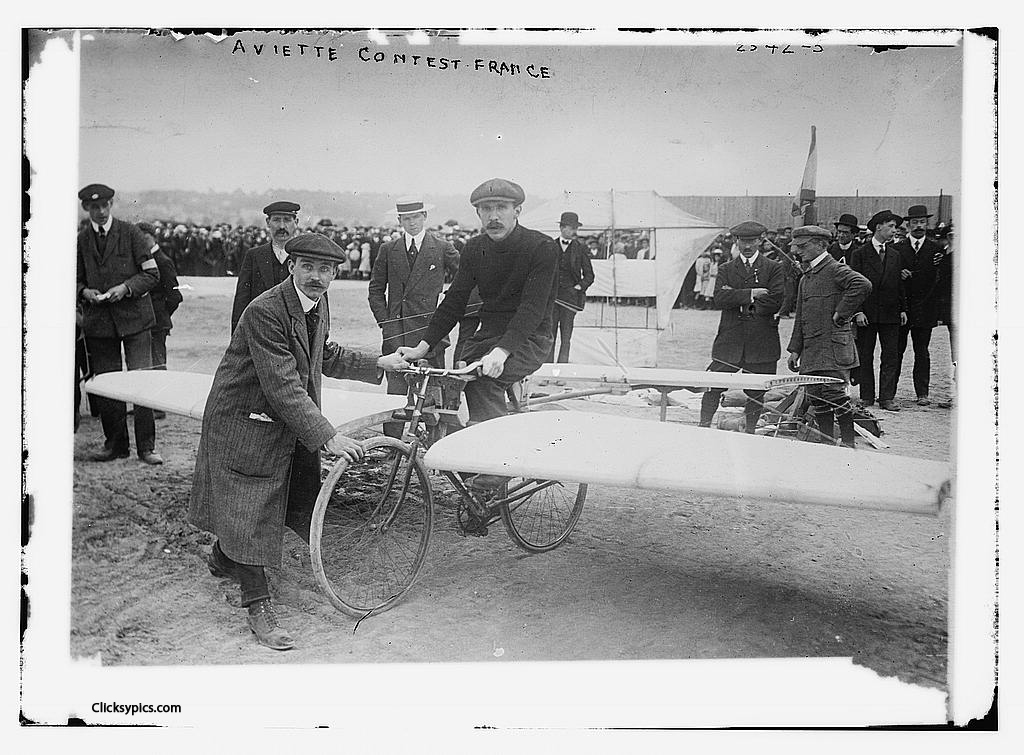Mae West, a great and dirty writer as well as a stage and screen icon, is visited by Dick Cavett on a Hollywood backlot in 1976.
You are currently browsing the yearly archive for 2013.
Tags: Dick Cavett, Mae West
If you thought Google Glass couldn’t get any more annoying, how about listening to Noam Chomsky complain about Google Glass? That’s the sound of my brain exploding.
Tags: Noam Chomsky
From a fascinating, brief portrait by Andrew E. Kramer of the New York Times of a space-age city in decline, a remnant of the collapsed Soviet Union that maintains vital importance as one of two active space-launch sites in the world:
“Baikonur, in remote western Kazakhstan, was once the pride of the Soviet Union, the home of the Baikonur Cosmodrome, the launching site of Sputnik, the dog Laika and the first man in space, Yuri Gagarin. But today, nomadic herders from the nearby steppe are moving into abandoned buildings.
That is just one of the signs of the city’s long fade into the sunset of post-Soviet social and economic problems, which are all the more remarkable given that much of the world, including the United States, still relies on Baikonur for manned space launchings. The only other site for such liftoffs is in Jiuquan, in the Gobi Desert in China.
‘It’s painful for me to think of my town,’ Anna Khodakovskaya, the editor of the local newspaper, said of its glum state. The first cellphones appeared here in 2004; the first M.R.I. machine in 2011. ‘We are not ahead of the planet in anything but space,’ she said.”
•••••
A video about Laika, the first animal to orbit Earth. She did not have a happy return like Ham the AstroChimp.
Swiss researchers have produced a robot that runs like a cat, to be used in rescue missions.
Two Q&As about our leaker culture, in this time when no one–and no entity–is truly private: Edward Snowden taking questions from Guardian readers, and Russell Brand explaining at Gawker why he’s been speaking in support of Bradley Manning.
__________________________
From Snowden’s Guardian interview, moderated by Glenn Greenwald:
Question:
US officials say terrorists already altering TTPs because of your leaks, & calling you traitor. Respond?
Edward Snowden:
US officials say this every time there’s a public discussion that could limit their authority. US officials also provide misleading or directly false assertions about the value of these programs, as they did just recently with the Zazi case, which court documents clearly show was not unveiled by PRISM.
Journalists should ask a specific question: since these programs began operation shortly after September 11th, how many terrorist attacks were prevented SOLELY by information derived from this suspicion-less surveillance that could not be gained via any other source? Then ask how many individual communications were ingested to achieve that, and ask yourself if it was worth it. Bathtub falls and police officers kill more Americans than terrorism, yet we’ve been asked to sacrifice our most sacred rights for fear of falling victim to it.
Further, it’s important to bear in mind I’m being called a traitor by men like former Vice President Dick Cheney. This is a man who gave us the warrantless wiretapping scheme as a kind of atrocity warm-up on the way to deceitfully engineering a conflict that has killed over 4,400 and maimed nearly 32,000 Americans, as well as leaving over 100,000 Iraqis dead. Being called a traitor by Dick Cheney is the highest honor you can give an American, and the more panicked talk we hear from people like him, Feinstein, and King, the better off we all are. If they had taught a class on how to be the kind of citizen Dick Cheney worries about, I would have finished high school.
__________________________
From Gawker‘s Brand interview, conducted by Camille Dodero:
Gawker:
Why are you talking about Bradley Manning on your birthday?
Russell Brand:
I don’t know a great deal about international espionage, but sometimes one senses that an issue is drifting in a certain direction, and just by speaking out in a small way, you can make a subtle difference on that perception. Some people have made their mind up no matter what: “Bradley Manning is a traitor because of revealing classified information.” It’s very difficult to impact those people. W.B. Yeats said, The best lack all conviction, while the worst/Are full of passionate intensity. But it might be nice, if I, from my gentle position—bouncing around on the Left elegantly and Englishly—suggest that it doesn’t seem like this person is acting particularly out of self-interest, but rather [Manning] was motivated out of a different kind of patriotism: a genuine love of the people of this country and concern for the people.
Gawker:
So what’s your realistic expectation when you lend your name to a campaign like this?
Russell Brand:
That you’ll get a a degree of abuse from people who are intrinsically opposed. The best you can do is draw the attention of people who are otherwise unsure or curious.
The culture has been expertly constructed so that what’s now regarded as esoteric information is everything except for stuff that directly concerns Kim Kardashian. So everything other than that, you might as well be speaking Aristotle in Greek. For me, I live, to a degree, in popular culture. So if I say, “Oh, that Bradley Manning seems that he was really trying his best to expose information he thought was important to American people regarding what was being done in their name,” all I’m hoping is that people who would otherwise entirely ignore it may have a flickering awareness, and some who would have had a flickering awareness would investigate further.•
Tags: Bradley Manning, Camille Dodero, Edward Snowden, Glenn Greenwald, Russell Brand
I don’t have the hard statistics on this one, but I feel like I see more people crying in public these days than ever before. That’s not necessarily a bad thing, but it is odd to see what are considered private moments burst through so openly. Is the world sadder now, with all our economic struggles? Is being connected to more people an opportunity for more disappointment? High school never really turns out right. Or are we just living privately in plain sight, existing within the smartphone in our hand or pocket without regard to what’s around us? As if we were in sort of a virtual phone booth. The latter is my suggestion of what it’s all about. We’re someplace else–maybe even some other time–even when we’re here and now.
The opening of “Connected, but Alone?” by Armando Duran at Medium:
“We live in the age of distraction with our multiple technological devices which in a way ‘give’ us the sense that we are connected to the world, to our friends, to our loved ones and to to the people that we share our lives with.
For a few months now, I have been noticing this behavior almost everywhere I go. Groups of friends and families gather to be together for multiple reasons. Yet their minds are elsewhere as most of the people have a device with which they can feel ‘connected’ with other people that are not with them in the present moment.
Technology has always inspired me as to what advancements we can achieve and how technology can make our lives easier. It is almost unstoppable the consumerism that has been built around getting the newest thing that there is.
I am not sure how much we, as intelligent human beings, stop and reflect on what is the impact in our psychology and our consciousness by the technological inventions we ourselves create. Sometimes the only way to make people reflect on something is when things start to go really bad.”
Tags: Armando Duran
Politics is often about massaging your message to make it seem palatable to whatever group you happen to be speaking to at that moment. Sen Rand Paul of Kentucky, a severe ideologue, is certainly not the only one to practice this artifice. But his recent comment about his distrust of democracy at Howard University is one of the more egregious, perplexing examples of the pivot I have ever heard. Here’s what he said:
“I’m not a firm believer in democracy. It gave us Jim Crow.”
So, he wants an African-American audience to believe that his disgust of institutionalized segregation is the reason why popular opinion shouldn’t always prevail.
Let’s leave alone the fact that the South at the time wasn’t exactly known for its democracy, with its poll taxes and intimidation at voting booths. Let’s just present an equally true statement based on Paul’s avowed beliefs about the Civil Rights Act:
“I’m not a firm believer in democracy. It forced the South to abandon Jim Crow.”
He’ll probably find an audience for that line as well.•
Tags: Rand Paul
From the August 28, 1900 New York Times:
Chicago–Samuel Haynes, sixty-five years old, an inmate of the Hospital for the Insane at Kankakee, walked into the river yesterday and was drowned. Haynes was well known as ‘Senyah,’ the trapee performer. He introduced the flying trapeze act, first presenting it at the old Crosby Opera House. Being injured by a fall, he became a printer, later attempting other ventures, all of which failed. About two years ago he showed symptoms of insanity and was removed to the asylum at Kankakee.”
Tags: Samuel Haynes
I want to learn more about YOUTUBE. – $1 (Queens)
I am currently working from home fixing computers.
I would REALLY like to have a voice in this world using one of the most popular forums on the planet.
I know the basics but would like to EXCEL at this.
In other words… I would like for someone that is a YOUTUBE veteran to show me the ropes.
If you think that you’d be able to help me in this area, please contact me.
Roman Polanski–wanted, desired and, now, Skyped. This April 2013 interview took place between the fugitive director and the Roxie Theater in San Francisco. In 1997, while vacationing in Paris, I was seated in a cinema on the Champs-Élysées waiting for the beginning of Howard Stern’s Private Parts. Who walked in just as the credits were about to start but Roman Polanski and an angelic-looking blond, who was either a woman who looked like a girl or a girl who looked like a woman. Polanski laughed aloud during the scene about Howard’s Bergman-esque college film.
Tags: Howard Stern, Roman Polanski
Time-shifting, largely an excellent thing, all began with the simple VHS vs. Betamax format war. From an Ars Technica article about the most disruptive recent technologies:
“Time-shifting (or why Jack Valenti is spinning in his grave)
Time-shifting content has been with us for a long time, driving the media industry nuts ever since the invention of the video cassette recorder. In 1982, Jack Valenti—then president of the Motion Picture Association of America—testified before Congress, saying, ‘The VCR is to the American film producer and the American public as the Boston strangler is to the woman home alone.’ (See the Ars series on TV for more Valenti rage.)
But Betamax and VHS were just the beginning. It was a shaky beginning at that, as I can tell you firsthand from years of prying my kids’ mangled copy of half a season’s worth of Power Rangers episodes out of the maw of a VCR tape slot. When hard drives were eventually married to video recording, it did a lot more than just change the recording mechanism. Digital recording moved time-shifting of TV and other content off tapes, virtualizing and outsourcing the recording process to the point that broadcast times are almost irrelevant.
So in some ways, Jack Valenti was right about time-shifting, or at least prescient. The virtualization of broadcast content—its separation from the tyranny of network time slots and from recording media itself—has changed the acts of viewing and listening. It’s accelerated the disintegration of network television and hastened the creation of new media outlets made purely for the Internet. If it weren’t for the move from analog VCR to bits on a disk, things like Netflix’s on-demand service and its all-at-once release of the original series House of Cards would never have happened.”
••••••••••
Time-shifting in 1977:
Tags: Jack Valenti
Jennifer Valentino-DeVries, who co-authored the “What They Know” series about surveillance for the Wall Street Journal, just did an Ask Me Anything at Reddit. A few exchanges follow.
___________________________
Question:
I’m as frustrated as anybody with what the government is doing. But i also know we need to be vigilant in trying to track and find out what real terrorists are doing. How can we strike the right balance between privacy and fighting against terrorism?
Jennifer Valentino-DeVries:
I might end up giving this answer a lot. But I think transparency is the key first step.
We can’t, as a society, decide if we agree with something if we don’t even know what that “something” is.
A couple senators on the Intelligence committee have been saying for some time, rather loudly, that there is a “secret interpretation of the law” that should worry us all. Turns out that secret legal interpretation is what allows this massive gathering of phone record information and so forth.
Those senators had been asking to have the legal reasoning be declassified, but they weren’t able to effect that change.
To me, if you can’t even declassify the way our own laws are being interpreted, that’s a huge question for our system. That’s not about protecting troop movements or activities. It’s about whether we as citizens get to know what the law says.
___________________________
Question:
Who else is watching me, besides the NSA? What are they doing with my information?
Jennifer Valentino-DeVries:
It depends on who you are and what you mean by “watching.”But I’ll just tackle this broadly.Your data can be gathered with incredible ease. For the most part, the folks doing this are the companies who are providing you the services. Google, for example, sifts through Gmail to show you ads. As you know, the phone companies can get a lot of information about the “metadata” from your calls.Depending on the type of data and who is gathering it, some of it gets sent to companies called data brokers. These guys (Acxiom, for example, or Lexis Nexis) store a lot of data about you from private sources as well as public databases, like court and real estate records.
Did it amuse any of you (if bitterly) that Mahmoud Ahmadinejad respected term limits in Iran over the weekend, but Mayor Bloomberg didn’t do the same in New York four years ago? Bloomberg has done his share of good things for the city–and some really dumb, tone-deaf ones–but circumventing the free vote of the people will always stain him. As his third term draws to a close, a passage from “The Untouchable,” Ben McGrath’s pitch-perfect 2009 New Yorker profile about Bloomberg at the very moment his arrogance was in the process of transforming him from able technocrat into something far less flattering:
“To people who aspire to become mayor of New York City in the traditional way, by suffering countless fund-raisers in apartments far larger than their own and attending interminable Democratic club meetings with the same cast of hangers-on, year after year, Bloomberg presents a conundrum. Many in the city’s political class believe that he’s been a good, if overrated, executive, and acknowledge that his ability to forgo the shaming hat-in-hand routine has proved far more valuable in warding off corruption than they would have liked to admit. When dealing individually with the more promising among these wannabes, Bloomberg is affable and plainspoken, in the way that a self-made man can be. He dispenses advice, tinged with just enough humor so that the condescension is not immediately apparent. (‘You know what you should do is, go out and make a billion dollars first, and then run for office.’) Or he chides, gently, ‘Why are you wasting your time doing this? You could be doing something really meaningful.’ They are flattered—who wouldn’t be?—by the attention. Only in retrospect does it begin to rankle. It’s not as though they haven’t privately nursed fantasies of ditching the numbing routines and indignities associated with a legislative life and exploiting their connections in the service of making millions (though maybe not billions) of dollars. They are not fools. They understand that the political game is rigged in favor of hackery. They know it because the hack businessmen come calling every day on the steps of City Hall.
But the political class always viewed Bloomberg’s mayoralty as an anomaly rather than as a paradigm shift, and looked forward to 2009 and, thanks to term limits, the end of his reign. For much of the second term, they endured the chatter, from the kinds of people whom they sometimes grudgingly court as their donors, about who could possibly succeed Mayor Mike, now that the bar had been raised: Dick Parsons, the Time Warner C.E.O. (since installed at Citigroup)? Jonathan Tisch, the Loews chairman? Joel Klein, the schools chancellor? One well-regarded politician recalled a breakfast last year at the Regency Hotel at which Tisch and Parsons joked about splitting the job in a tandem arrangement: alternating days, with both off on Sunday. Perhaps it was just a good-natured attempt at deflecting all the wishful speculation, but to the politician, after six-plus years of Mike Bloomberg’s booming New York, it sounded like self-satisfied dilettantism. It drove him mad. More insulting still was the proto-candidacy of John Catsimatidis, whose résumé seemed a too literal re-creation of the Mayor’s—billionaire entrepreneur, amateur pilot, and lifelong Democrat who had recently discovered the conveniences of Republicanism—but who seemed to lack any of Bloomberg’s obvious gifts. Catsimatidis owns Gristedes, a second-rate grocery-store chain, not a revered technology company that revolutionized global finance. But at least he was beatable. Then Bloomberg decided that he didn’t want to surrender his seat.”
Tags: Ben McGrath, Michael Bloomberg
If your city is plagued by rats, the best thing to do is loose a lot of snakes upon them. Then you can have a city plagued by fewer rats and many fat snakes. An excerpt from an article in the August 23, 1903 New York Times about the burgeoning snake-extermination industry:
“New York is almost as rat-ridden a town as the one which the famous Pied Piper cleared of with his marvelous flute; but the work of destroying them is carried on so persistently and scientifically that the rodents are never allowed to gain unmanageable headway. During the rainy weather, however, when the rivers back up into the cellars of the wharf houses and docks, the rats are driven up from their holes in such numbers that one might think a plague of the creatures had suddenly visited New York. At such times the rat-killers are called upon to make extra exertions in destroying them, and every ferret in the town is in active operation. These ferrets are trained to their work, but they are not always able to penetrate the lowest strongholds of the rats, where their nests are built. Hence it is that new broods are brought forth every season, and the supply is kept up indefinitely.
One of the latest methods of destroying the young of the rats is to train snakes for the work. A good-sized snake can wriggle in almost any hole that a small rat will enter. A snake is too quick for a rat to escape, and when he strikes it is sure death for the rodent. The average snake prefers young rats to large ones, and he will go hunting for the delicate morsels to the neglect of the parents. A good trained snake will smell a nest of young rats a long distance off, and once the scent is taken up it is never dropped until the prey is captured.
Black snakes, garter snakes, grass snakes, and common garden snakes all make good rat catchers, but it requires an expert to train them. If turned loose in a warehouse the average snake will take to the first rat hole, but he will not return to his owner again. It is the retrieving that makes the snake valuable.
MUST BE TRAINED YOUNG
‘We train snakes when they are very young,’ explained one of the pioneers in this new industry. ‘We started in first to rid our own establishment of mice and rats. We found that one good black snake could gorge himself with more mice than the best cat, and day after day he would return to the chase. A snake brought up on mice and rats acquires a great taste for them, and as he grows older his capacity increases. I have had black snakes in my bunch that would average six or seven young rats a day, and would never tire of the diet. With half a dozen snakes one can clean a house of young rats in a short time.
‘It is quite impossible to train an old snake to return willingly, but we can induce them to enter traps baited with young rats after they have cleaned out a building. In this way it is possible to secure good results without much previous preparation.
‘One of the disadvantages about using snakes for this work is that the building must be shut up overnight, and sometimes for several days, so the snakes themselves cannot escape. This is all right in some warehouses where no work is going on sometimes for weeks at a time. We can go in where there is stored grain or freight and take complete possession of the building. We let the snakes operate there for days and nights in succession. We won’t see anything of the reptiles, it may be, for nearly a week, and then one by one they will crawl back from the holes and hunt around in the opening for prey. We know then that the rats are pretty well cleaned up, and the snakes are hunting for new pastures.
‘We frequently turn snakes loose in cellars of stores and then shut down the doors, warning all the occupants of the building to keep out of the way. Of course some officious janitor will sometimes break the rules and penetrate the cellar, and if he isn’t frightened out of his wits by the snakes it is the fault of his nerves. A snake pursuing a rat across a dark cellar is not a sight to steady one’s nerves. If baffled in his work by the intrusion of any one the black snake will more than likely turn upon the intruder and hiss at him. The reptile is harmless, but his appearance and attitude are not pleasant.
‘We were ordered to clean out the rats from a down-town candy store one day this Summer when the building was being overhauled. Most of the packing and candy-making girls were away for their two weeks’ vacation, and the ferrets and the snakes had full possession of the building. Now snakes and rats are both fond of sweet things. In that cellar there were a score or two of nests, and the young rats offered a great feast to the snakes.
SNAKES FOND OF SUGAR
‘But after cleaning out the young rats the snakes were perfectly contented to stay in the cellar. Plenty of candy had been carried into the holes by the rats, and the wrapping paper and boxes were also saturated with sugar. In fact, the whole cellar was sweet, fairly reeking with sugar, chocolate and sweetmeats. There was enough to last the snakes for months, and they just stayed in the holes gorging themselves with candy and sugar.
‘We had pretty hard work to entice them from their holes. Somebody suggested milk, and we tried this, and sure enough they did visit a pan of milk every night. I don’t know what for, as I have never seen a snake drink milk yet. They simply did, and we managed to capture them in this way. They would swim around in the milk can, and we could stand by and catch them.”
Ralph Graves, the final editor of the weekly Life magazine which ceased publishing in 1972, just passed away. If he only had a several-year run at the top, Graves picked the right time, a raucous era for jaw-dropping news. He presided over everything from the highs of Norman Mailer’s mammoth multi-part moon landing article to the lows of nearly publishing excerpts from Clifford Irving’s Howard Hughes hoax book. From his New York Times obituary:
“But by the late 1960s general-interest magazines, squeezed by television on the one hand and specialty publications on the other, were an endangered species. Life’s circulation was 8.5 million when Mr. Graves took over; a year and a half later it was 5.5 million, despite a strong run of journalism.
Within weeks of becoming managing editor, Mr. Graves supervised a controversial issue whose cover article, under the headline ‘The Faces of the American Dead in Vietnam: One Week’s Toll,’ showed photographs of more than 200 American soldiers killed in the Vietnam War from May 28 through June 3.
The article was especially startling appearing in Life, which had a history of supporting the war, and it drew a passionate reaction, both from those who found that it exploited the country’s grief and from those who found it courageous and moving. As a journalistic device, it has since been used by many publications, including the New York Times.
That same year, 1969, Life covered Woodstock, the moon landing (with a more than 20,000-word article by Norman Mailer) and the unlikely success of the Mets. The next year, Life published unauthorized reminiscences by the former Soviet premier Nikita S. Khrushchev that the Soviet government newspaper said were fraudulent. Experts on Khrushchev consulted by the magazine declared the manuscript legitimate.
In 1971, Mr. Graves and Life were victims of a genuine fraud after Clifford Irving, a relatively unknown writer, with the aid of a researcher, created a phony memoir of the reclusive industrialist Howard Hughes and sold it to McGraw-Hill. Life bought serial rights and was set to publish three 10,000-word installments when the hoax came to light. In 1972, Life published an account by Mr. Graves of the whole embarrassing affair.
‘I was an active participant in everything that happened,’ he wrote in a 2010 memoir, The LIFE I Led. ‘I spent substantial time with Clifford Irving himself, some of it at crucial moments.'”
Tags: Ralph Graves
Tags: Gilda Radner
Every time I see someone wringing their hands about a tech company’s dominance, I advise just a little patience. It’s awfully difficult to maintain excellence in that sector. Journalist Wade Roush thinks that Apple, Google and Facebook are all already in their gloaming. Time will tell. Of the three, I have the most hope for Google, even though their non-search endeavors have yet to overwhelm. From Roush’s Xconomy post:
“At the risk of making myself into a pariah around Silicon Valley, I have a prediction to make. The storm has just about run its course. We have passed peak Apple, peak Google, and peak Facebook.
By which I mean: Apple will never again come out with a product as transformative as the iPhone. Google will never build anything more useful than its existing search engine, and it will never discover another business model as lucrative as search-based advertising. And Facebook may keep growing until every person on Earth with a computing device is a member, but it won’t ever be anything more than a place we share photos and links.
In sum, the next major advances in technology—the ones that will power the next cycle of entrepreneurship in Silicon Valley and the nation’s other tech hubs—will have to come from somebody else. To switch metaphors, the car is already out of gas; we just think there’s still forward progress, because we haven’t coasted to a stop quite yet. But we will.”
Tags: Wade Roush
10 search-engine keyphrase searches bringing traffic to Afflictor this week:
- westworld yul brynner
- mark frechette movie star joined cult robbed bank murdered
- shooting buffalo from speeding trains in the old west
- article about paul snider and dorothy stratten
- communards in their coffins
- muhammad ali with stepin fetchit
- pushing fat man on tracks philosophical problem
- personal habits of charles dickens the writer
- real dog day afternoon footage
- why did charlie rose have a black eye?
- Old Print Articles: Hungry prospector kills, cannibalizes his fellow travelers (1883) + Dancing evangelist attempts fraud (1893).
- Featured Videos: Aga Khan IV practices cosmopolitanism (1964) + David Frost and Truman Capote discuss friendship and sex (1969) + Biosphere 2 went bust (1991) + Electric buses that flash charge at stops in 15 seconds + Staples is selling a 3D printer + Economist Andrew McAfee imagines the future of work in a roboticized world + Melvyn Bragg conducts Dennis Potter’s final interview (1994) + A roboticized underground bicycle parking lot in Japan + A flying bicycle in Prague.
- Recently Posted on NYC’s Craigslist: You need to clean your dentures anyway + I’m fat and stupid + Do you seek a sense of permanence?
- Jeffrey Toobin doesn’t think Edward Snowden is a hero.
- Senator Rand Paul discusses civil liberties and dystopian novels.
- Brandon Neely, former Gitmo guard, does an Ask Me Anything.
- Not even Morton Downey Jr. was as bad as Alex Jones.
- Terrorism isn’t the greatest danger, but we cede our civil liberties because of it.
- The Democrats won the nation even while losing Kansas.
- The robot revolution will bring some unexpected emergent behaviors.
- Imagining NYC in 2050, after more ravages of climate change.
- Great as it is, meritocracy has its flaws.
- George Eastman’s marvelous company was laid low by its own innovation.
- Steven Spielberg thinks the Hollywood business model is a time bomb.
- Franco Moretti has made a discipline of “distant reading.”
- A brief note from 1886 about a man who stopped sneezing.
- A brief note from 1891 about devout children.
- A note from 1899 about a severe toothache.
- This week’s Afflictor keyphrase searches.
From the March 12, 1886 New York Times:
Philadelphia–While Frank Murgatroyd was in bed early this morning he was seized with a violent spell of sneezing. The family was aroused, and everything was done for the man’s relief that could be thought of. The sneezing was kept up with unabated vigor, however, and before medical aid could reach him, Murgatroyd was a corpse. It is supposed that he ruptured a blood vessel.”
Tags: Frank Murgatroyd
I’m sure that feeding books into computers instead of reading them can tell us something about literature–and ourselves–but there are limits to quantitative methods when it comes to poetry. The opening of “Big Data Meets the Bard,” an article about “distant reading” by John Sunyer in the Financial Times:
“Here’s some advice for bibliophiles with teetering piles of books and not enough hours in the day: don’t read them. Instead, feed the books into a computer program and make graphs, maps and charts: it is the best way to get to grips with the vastness of literature. That, at least, is the recommendation of Franco Moretti, a 63-year-old professor of English at Stanford University and unofficial leader of a band of academics bringing a science-fiction thrill to the science of fiction.
For centuries, the basic task of literary scholarship has been close reading of texts. But for digitally savvy academics such as Moretti, literary study doesn’t always require scholars actually to read books. This new approach to literature depends on computers to crunch ‘big data,’ or stores of massive amounts of information, to produce new insights.
Who, for example, would have guessed that, according to a 2011 Harvard study of four per cent (that is, five million) of all the books printed in English, less than half the number of words used are included in dictionaries, the rest being ‘lexical dark matter’? Or that, as a recent study using the same database carried out by the universities of Bristol, Sheffield and Durham reveals, ‘American English has become decidedly more ‘emotional’ than British English in the last half-century’?
Not everyone is convinced by this approach.”
Tags: Franco Moretti, John Sunyer
Aga Khan IV, spiritual leader and one of the world’s richest royals, cut quite a cosmopolitan, dashing figure in his younger days, marrying models, skiing competitively, racing horses and posing for photo ops. Here’s a hypnotic documentary about him from 1964.
Tags: Aga Khan IV
The dream of dying by telephone-wire decapitation lives on in Czechoslovakia. Information about a flying bicycle from Digital Trends: “The radio-controlled flight was made possible by the bicycle’s six battery-powered propellors, which makes the contraption look a bit like an enormous RC quadcopter. Though the bicycle looked pretty stable during its flight, its large propellors make it look cumbersome to ride and its size means such a bike would face limitations as to where it could go, especially in urban areas. And then there’s all those aforementioned overhead hazards to think about.
Speaking about the project to local news site Ceske Noviny, project participant Ales Kobylik said, ‘Our main motivation in working on the project was neither profit nor commercial interest, but the fulfillment of our boyish dreams.’
The team said they hope to stick a real life human in the saddle this fall, doing away with the need for a radio controller.”

































